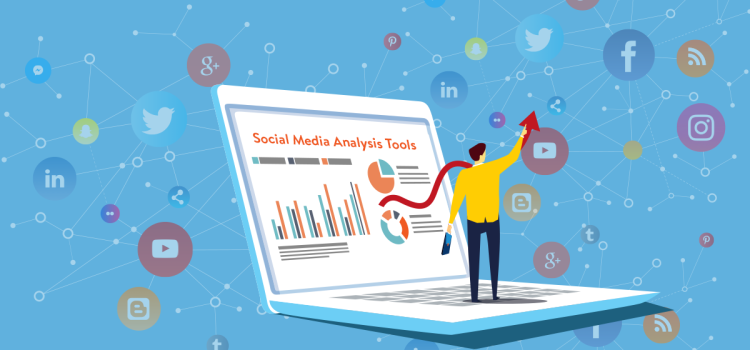
In today’s digital age, social media has become an indispensable part of our daily lives. Platforms like Facebook, Twitter, Instagram, LinkedIn, and TikTok are not just avenues for social interaction but also powerful tools for businesses. The vast amount of data generated on these platforms has given rise to a new field: Social Media Analytics. By leveraging Social Media Analytics, businesses can make informed decisions that drive growth and increase profitability. This article delves into how Social Media Analytics are transforming business strategies and decision-making processes.
Understanding Social Media Analytics
Social Media Analytics involves the collection, analysis, and interpretation of data from social media platforms. This data can include user demographics, engagement metrics, sentiment analysis, and more. The objective is to gain actionable insights that can inform business strategies. Tools like Hootsuite, Sprout Social, and Google Analytics have made it easier for businesses to track and analyze their social media performance.
The Importance of Social Media Analytics
1. Customer Insights
One of the most significant benefits of Social Media Analytics is the ability to gain deep insights into customer behavior. By analyzing data such as likes, shares, comments, and mentions, businesses can understand what their customers are interested in and how they interact with their brand. This information is invaluable for tailoring marketing strategies, product development, and customer service.
2. Competitive Analysis
Social Media Analytics also allows businesses to keep an eye on their competitors. By monitoring competitors’ social media activities, businesses can identify trends, strengths, and weaknesses. This competitive intelligence can be used to refine their own strategies and gain a competitive edge.
3. Brand Health Monitoring
Understanding how a brand is perceived in the market is crucial for any business. Social Media Analytics provides real-time data on brand mentions, sentiment analysis, and overall brand health. This information helps businesses to address any negative perceptions quickly and effectively, thereby maintaining a positive brand image.

4. Content Optimization
Content is king in the realm of social media. Social Media Analytics helps businesses understand which types of content resonate most with their audience. By analyzing metrics such as engagement rates, click-through rates, and conversion rates, businesses can optimize their content strategy to maximize impact.
5. ROI Measurement
Measuring the return on investment (ROI) of social media campaigns has always been challenging. Social Media Analytics provides a comprehensive view of how campaigns are performing. By tracking key performance indicators (KPIs) such as reach, engagement, and conversions, businesses can assess the effectiveness of their campaigns and make data-driven adjustments.
How Businesses Are Leveraging Social Media Analytics
1. Targeted Marketing
One of the most effective ways businesses are using Social Media Analytics is for targeted marketing. By understanding the demographics and interests of their audience, businesses can create highly targeted ads that are more likely to convert. For example, a fashion retailer can use analytics to target ads to users who have shown interest in fashion-related content, thereby increasing the likelihood of sales.
2. Product Development
Social Media Analytics can also inform product development. By analyzing customer feedback and sentiment, businesses can identify gaps in the market and develop products that meet customer needs. For instance, a tech company can use analytics to understand what features customers are looking for in a new gadget and incorporate those features into their product development process.
3. Customer Service
In today’s fast-paced world, customers expect quick and efficient service. Social Media Analytics can help businesses identify common customer issues and address them proactively. By monitoring social media conversations, businesses can provide timely responses and improve overall customer satisfaction.
4. Influencer Partnerships
Influencer marketing has become a popular strategy for many businesses. Social Media Analytics can help identify the right influencers for a brand by analyzing their reach, engagement, and audience demographics. This ensures that businesses partner with influencers who can genuinely impact their target audience.
5. Crisis Management
In the age of social media, a crisis can escalate quickly. Social Media Analytics allows businesses to monitor conversations in real-time and identify potential issues before they become full-blown crises. This enables businesses to take swift action and mitigate any negative impact on their brand.
The Future of Social Media Analytics
As technology continues to evolve, so too will the capabilities of Social Media Analytics. Artificial Intelligence (AI) and Machine Learning (ML) are already being integrated into analytics tools, providing more accurate and predictive insights. These advancements will enable businesses to make even more informed decisions and stay ahead of the competition.
Moreover, as privacy regulations become stricter, businesses will need to find a balance between leveraging data and respecting user privacy. Ethical considerations will play a significant role in the future of Social Media Analytics, ensuring that data is used responsibly and transparently.
Conclusion
Social Media Analytics is no longer a luxury but a necessity for businesses looking to thrive in the digital age. By providing valuable insights into customer behavior, competitive landscape, brand health, and campaign performance, Social Media Analytics empowers businesses to make data-driven decisions. As technology continues to advance, the role of Social Media Analytics in driving business decisions will only become more significant. Businesses that embrace this powerful tool will be well-positioned to succeed in an increasingly competitive market.










